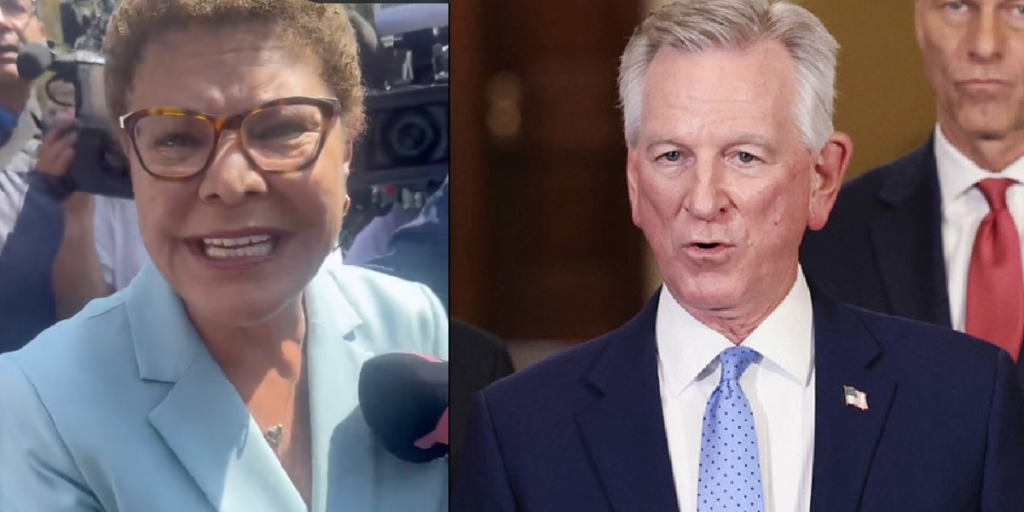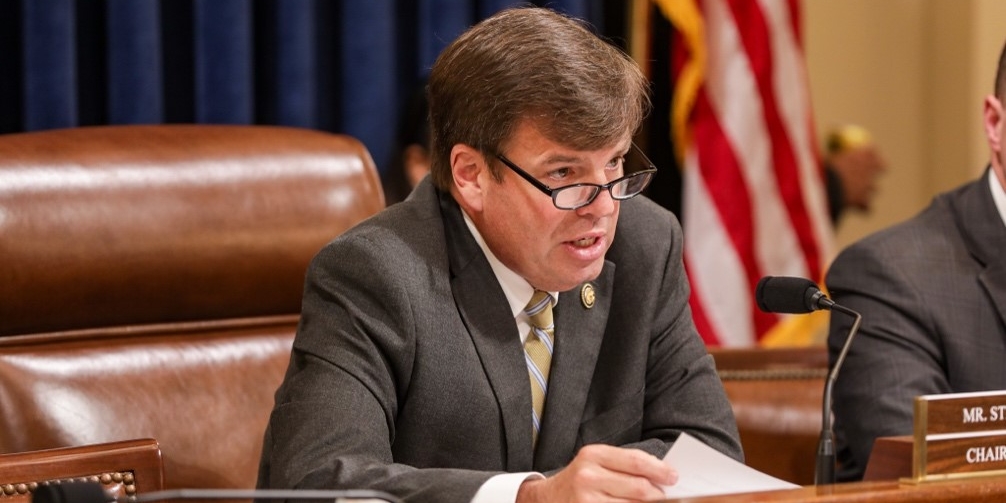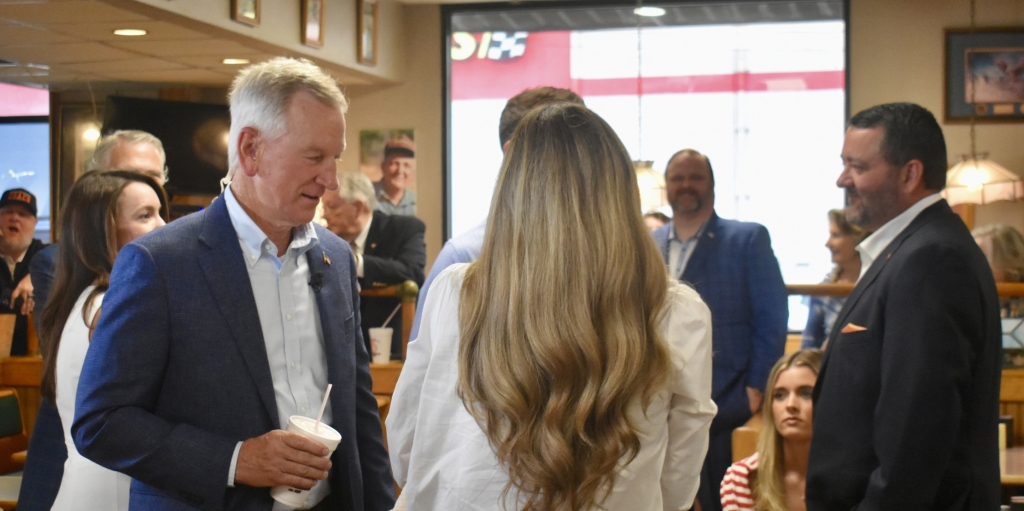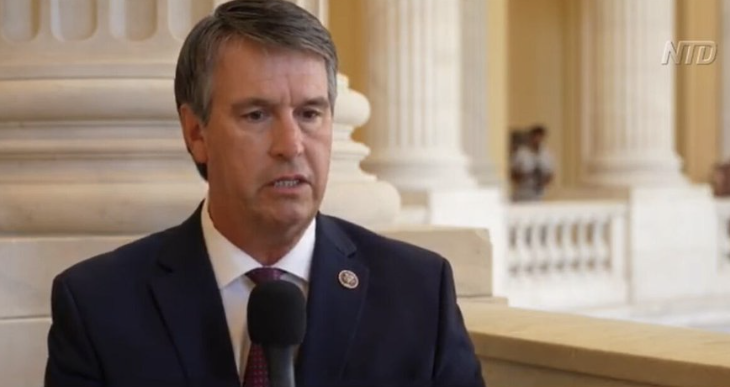
When Alabama rang in the New Year last January, Luther Strange was its Attorney General. At the time, his office was investigating Robert Bentley for crimes the former governor committed in his zeal to hide his affair with Rebekah Mason. Before Bentley resigned, he appointed Strange to fill Jeff Sessions’ seat in the U.S. Senate.
Because Strange was appointed by the man his office was investigating, a cloud has followed him since. Strange recently sat down with Yellowhammer to tell his side of the story, as did some of his critics.
For context, we must rewind to last November. Donald Trump won the presidential election on November 8th and ten days later announced that Jeff Sessions would be his new Attorney General. This appointment created a vacancy for Sessions’ U.S. Senate seat, which a host of Alabama Republicans was eager to fill. However, it was the embattled Governor’s job to appoint a successor. Bentley interviewed some twenty people for the job, including some of Strange’s opponents in this summer’s Senate race, who are now among his loudest critics for taking the appointment.
Some six weeks later, on December 27th, Strange and Bentley met, as Bentley required of anyone he was considering for the fill the vacant seat. That’s where we started our interview with Luther Strange. Specifically, we talked about the fact that some of his detractors have accused him of going to Bentley’s office that late December day to cut a deal. Their theory is that Strange told Bentley he’d drop the investigation in exchange for an appointment to the United States Senate. To this, Strange replied:
First, my former office prosecuted Robert Bentley after he appointed me, which obviously would not have happened if I’d cut a deal with him.
Second, Alice [Martin] and Matt [Hart] would have never gone for that. Matt Hart would have thrown me in jail if I’d gone to them with something that preposterous.
My first order of business when I was elected in 2011 was to create a special division to stop public corruption. I hired Matt and Alice, and staffed them with a half-dozen former FBI agents as investigators and told them to follow the truth wherever it leads. They removed Sumter County Sheriff Tyrone Clark from office for human trafficking—the first Sheriff impeached in Alabama in over a hundred years. In all, they convicted over two dozen corrupt public officials including the most powerful one in the state, House Speaker Mike Hubbard. That resulted in our budget being zeroed out by the legislature controlled by our own party. So again, we were hardly in the favor-swapping business because our own political party was stripping our funding. Plus, to drop the governor’s investigation in exchange for the appointment, I would have had to get prosecutors like Matt and Alice to agree to it. That’s an insult to that entire unit whose very mission was fighting corruption.
To that point, Representative Ed Henry told Yellowhammer,
No one believes that Luther ever said “give me this job and I’ll make your investigation go away.” The issue with Luther is we all knew he had enough to indict Robert Bentley. So, by Luther taking that meeting, it was kind of like he’s got this metaphorical loaded gun on his hip. Sure, he may not have ‘pulled it and pointed it at him’ by asking for the appointment, but if you’re the unarmed guy, you don’t stop thinking about this loaded gun that this man can and will use if he has to. Does that affect the way you view the situation and the decisions you ultimately make? You better believe it does.
I asked Senator Strange if he simply asked Bentley for the appointment in that late-December meeting, and again, he said no.
No. When Jeff [Sessions] said he was going to be the next U.S. Attorney General over a month earlier, I made a formal announcement that I was running for his Senate seat. I was already out running, regardless of who he was appointing to that seat. When the governor asked me if I’d accept it if he offered it, I told him I would, but I never asked him for the seat. I also told the governor that it was of utmost importance if he did appoint me that he must appoint someone to take my place who had the integrity and courage to keep that public corruption unit going, and Steve Marshall has obviously done that. In fact, that’s the same unit that prosecuted Governor Bentley, as I said earlier.
State Representative Paul Beckman, an attorney who serves on the Alabama House Judiciary committee and was heavily involved in Bentley’s impeachment investigation, views it much the same as Ed Henry.
Look, no one is saying this was illegal; it’s a matter of ethics. Luther’s office was in the middle of a criminal investigation of Bentley, so it just doesn’t look good for Bentley to turn around and appoint the man who’s investigating him. He took the appointment under questionable circumstances, and that took the decision out of the hands of the people. The undecided voters in this election represent a larger group than normal and I think that’s one reason why. You have to do what’s right and instead of waiting for it to play out, Luther created the stigma that now hangs over him.
The other significant issue surrounding Strange’s appointment happened nearly two months earlier. By late October, the news of Bentley and Mason’s affair had been known to the public for several months. The House Judiciary Committee was investigating Bentley as part of a possible impeachment proceeding for his misconduct. To that end, the Committee had hired a special counsel, Jack Sharman, to head their investigation.
On November 1, Strange and his team met with state legislators about their impeachment investigation at the legislators’ request. In that meeting, Strange said his team expressed concerns that the House investigation would hurt their criminal investigation. As he told Yellowhammer,
We didn’t want to mess each other up, so they said they’d wait till our investigation played out. But they were under pressure from their membership to do something so they said, ‘If you don’t mind send us a letter to that regard.’ It was just procedural, so they could avoid our key witnesses that might be testifying in front of a grand jury and we didn’t want to jeopardize that process.
Two days later, Strange wrote the follow-up letter asking the House Judiciary Committee to pause their investigation of Bentley. That letter read, in part, “I respectfully request that the Committee cease active interviews and investigation until I am able to report to you that the necessary related work of my office has been completed.”
House Judiciary Committee Chairman Mike Jones, who was at the meeting, seemed to think pausing was the right thing to do. In his news release at the time, he stated, “As I said at the first meeting on the Articles of Impeachment, this committee would work cooperatively with other investigating agencies and today’s action testifies to that…We are temporarily suspending activity at the attorney general’s request, but we are not abdicating our responsibility. Everything the committee has done remains in effect.”
To this, Rep. Beckman said that while he respects Jones’ decision, he didn’t see the conflict. “First, the Committee never voted on this ‘pause for the cause’ idea. The AG’s office was pursuing a criminal matter, and we were pursuing a civil matter, an ethics violation. So, I disagree with the premise that the two investigations were conflicting. It wasn’t until Ed Henry had the courage to stand up on the House floor and point out that we were failing to do our constitutional duty by sitting back and waiting that we resumed the impeachment investigation. Once we restarted, Jack Sharman’s findings that played a big roll in Bentley’s resignation.”
Strange also pointed out that after he was in the U.S. Senate, Ellen Brooks was handing the A.G.’s investigation and she also asked the House Committee to pause, over her concern of double jeopardy. “The point is,” Strange said, “it’s not uncommon for prosecutors to ask for such a pause to protect the integrity of their investigation.”
To cut to the core of the issue, I asked Strange if he asked the legislative committee to pause the Bentley case so Bentley could appoint him to Sessions’ seat. Following is his reply:
No, that’s impossible. The meeting with the legislators was a nearly week before the presidential election and two weeks before Trump’s announcement that Jeff would be his new AG. Virtually every poll said Hillary Clinton was going to win the election. When I agreed to the legislators’ request for a meeting and sent the letter two days later, neither I nor anyone else knew Donald Trump was going to win the election and appoint Jeff. To suggest I delayed it to get Jeff’s Senate seat means I would have known what was going to happen two weeks in the future. Also, as I pointed out earlier, that theory would have required the participation of Matt, Alice and the public corruption unit, and that would have never happened.
Rep. Beckman doesn’t dispute the fact that Strange had no way of knowing who’d win the presidential election, but he says that doesn’t matter.
Of course, he didn’t know if Trump would win, but that’s not the issue. Luther Strange was in a great position—he had absolutely nothing to lose by delaying Bentley’s investigation, regardless of who won the presidency. If Trump won, we all knew Jeff Sessions would get appointed to something…everyone knew that his Senate seat would be vacant. So it’s reasonable to conclude that Luther was thinking that if he delays the investigation and Trump wins, he has a great shot at Sessions’ Senate seat. Or, if Trump loses, he can stretch the Bentley investigation out until just before the 2018 governor’s election, then get a conviction on Bentley, and he looks like a hero and he becomes governor. He had a strong card to play either way. All of this is just my personal opinion, but Luther had time on his side, with nothing and to lose, regardless of how the presidential election turned out. He was holding all the cards.
Strange said if that were true, he would have been the one to ask for the November 1 meeting. But as he points out, it was the legislators who reached out to him, not the other way around.
My team and I met with the legislators because they asked for the meeting. They sought us out, so Alice Martin, Matt Hart, and I met with them. This included House Judiciary Chairman Mike Jones, House Speaker Mac McCutcheon and a few others. We were being responsive to them, and as Mike Jones indicated, we expressed our concerns in an honest attempt to preserve the integrity of the investigation. The bottom line is, they would have never gotten a letter from us asking for a pause if they hadn’t come to us and asked for the meeting in the first place.
In the final analysis, it seems no one seriously believes Luther Strange broke any laws or arranged any sort of back room deal. Those with strong opinions seem to fall into one of two camps: one group believes his acceptance of the appointment was unethical and that he should have waited until this special election to run, removing any appearance of wrong doing. Others believe he did what any of the others Bentley interviewed would have done if they’d been asked to go to the U.S. Senate: accept the appointment and enjoy the advantage of running as the incumbent.
In two short weeks, the voters will have their say in the matter. On August 15th, we’ll then find out if there will be a Republican primary runoff or if one candidate will emerge as the Republican nominee to face the Democrat (likely Doug Jones) in the fall.












